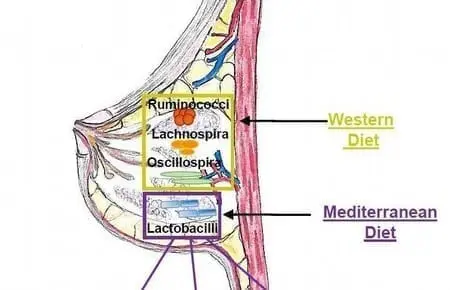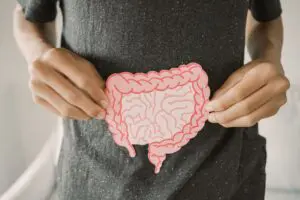By Ross Pelton, RPh, PhD, CCN
Results of a recently published study report that diet plays a critical role in determining microbiota populations in tissues outside the intestinal tract, such as the mammary gland.i

Compared to our Standard American Diet (SAD), a healthier Mediterranean-type diet increased the abundance of probiotic bacteria previously shown to inhibit tumor growth in animals. Lead scientist Carol Shively stated, “We showed for the first time that breast-specific microbiome populations are significantly affected by diet, and this was in a well-established nonhuman primate model of women’s health, increasing the likelihood that these findings will be important for human health. The breast microbiome is now a target for intervention to protect women from breast cancer.”
Macaque monkeys were selected for this study because the animals mimic human breast biology and have been used to study breast cancer risk. One advantage over human studies is that the food intake of the monkeys can be carefully controlled for a prolonged period of time, increasing the chance of observing profound effects of diet.
The scientists divided 40 adult female monkeys into two groups. One group receive a Western diet and the other was given a Mediterranean diet for 31 months. The breast tissue of monkeys that consumed a Mediterranean diet contained a 10-times higher abundance of strains of Lactobacillus bacteria, which have been shown to decrease tumor growth in animals with breast cancer. The Mediterranean diet also increased levels of other postbiotic metabolites that may decrease breast cancer risk.
The results of this study suggest that diet directly influences microbiome populations outside of the intestinal tract and could impact mammary glands and breast cancer risk.






